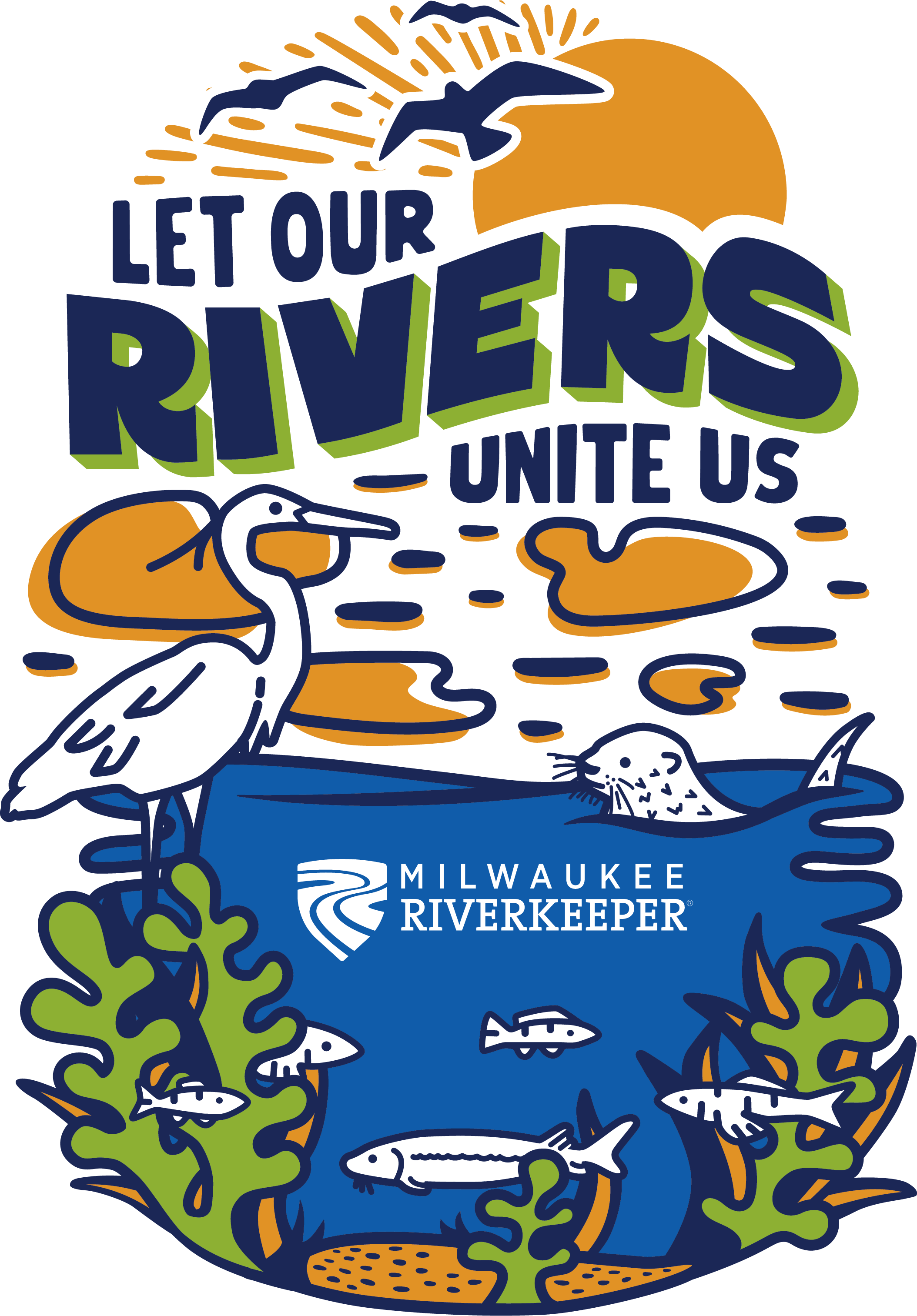Milwaukee Riverkeeper Annual Report Shows Improvement in River Health
Annual report celebrates progress and highlights efforts to restore and reconnect rivers to improve water quality in Milwaukee River Basin
Each year, Milwaukee Riverkeeper releases an Annual River Basin Report Card, detailing the health of the Milwaukee River Basin’s three major waterways: the Milwaukee River, the Menomonee River and the Kinnickinnic River. This year’s report highlights the critical need for a collaborative and innovative approach to solving water-related issues. Milwaukee Riverkeeper emphasizes the importance of continuity in data collection and transparency in decision-making processes as key to making long-term, sustainable change for our rivers.
The interconnectedness of water-related challenges and the need for collaborative, innovative solutions cannot be over emphasized,” said Executive Director, Jennifer Bolger Breceda. “We are deeply engaged in a broader initiative that involves fostering a sense of unity among individuals and groups who recognize the inherent value of water and working with diverse audiences to safeguard our precious water resources.”
This report focuses on data collected by Milwaukee Riverkeeper’s dedicated corps of volunteers in 2022. Over 90 volunteer water quality monitors put in over 1100 volunteer hours annually. Many individuals have monitored their site for a decade or more, serving as experts on their section of river; often first on the scene to report pollution, discover water main breaks and report illegal dumping. Collaboration is a critical component of watershed restoration. This report includes data from the Wisconsin Department of Natural Resources, MMSD, Ozaukee County, and other community organizations. Improvements to river health take time, investment, and strong partnerships to accomplish.
“Many people question why we monitor water quality every year. Collecting long-term data helps us better assess the general health of our rivers, creeks, and watersheds. This data can highlight areas in need of better land management practices, pollution sources that need to be addressed, and the need for better policy solutions,” said Riverkeeper Cheryl Nenn.
“Our report card helps us put water quality data in the hands of the people, where we hope it will inspire more informed decision-making (by families and governments alike), greater community engagement, and increased dedication to revitalize our rivers. Continuous data helps us assess long-term trends, such as warming water temperatures from climate change that threaten coldwater fisheries, and will hopefully help us answer future questions that we haven’t even thought to ask yet!
TOP TAKEAWAYS:
The overall water quality grade moved from a D+ to a C- in the 2022 report. Every watershed had improved water quality across the Basin, except for the Estuary. The South Branch Subwatershed moved up from a D to a C- for the first time in 6 years. One unsurprising finding is the persistent and pervasive presence of pollutants like phosphorus and bacteria, although there were modest improvements in these grades in every subwatershed except the East and West Branch of the Milwaukee River and the Kinnickinnic River. These pollutants are attributed to fertilizers, leaky sewage pipes, failing septic systems, pet waste, and farm runoff. Without large-scale regulatory and infrastructure improvements, we’re unlikely to see dramatic changes in these pollutants in the near term.
Improvements in water quality take time to see. So how can folks make an impact? Get involved! Become a water monitoring volunteer, participate in local cleanups and restoration work, or offer financial support for this work. Care for water begins at home and in your personal life by limiting your use of single-use plastics, installing stormwater collection systems like rain barrels and gardens, and minimizing your use of fertilizers, road salt, pesticides, and other chemicals that pollute our rivers. You can never reach out too early or too often to your elected officials to share your support for clean water protections and initiatives. Read the full report and find other ways to get involved at www.milwaukeeriverkeeper.org.
NOTE: This press release was submitted to Urban Milwaukee and was not written by an Urban Milwaukee writer. While it is believed to be reliable, Urban Milwaukee does not guarantee its accuracy or completeness.
Mentioned in This Press Release
Recent Press Releases by Milwaukee Riverkeeper
Let Our Rivers Unite Us!
Apr 11th, 2024 by Milwaukee RiverkeeperMilwaukee Riverkeeper Spring Cleanup Event Slated for April 20, 2024























